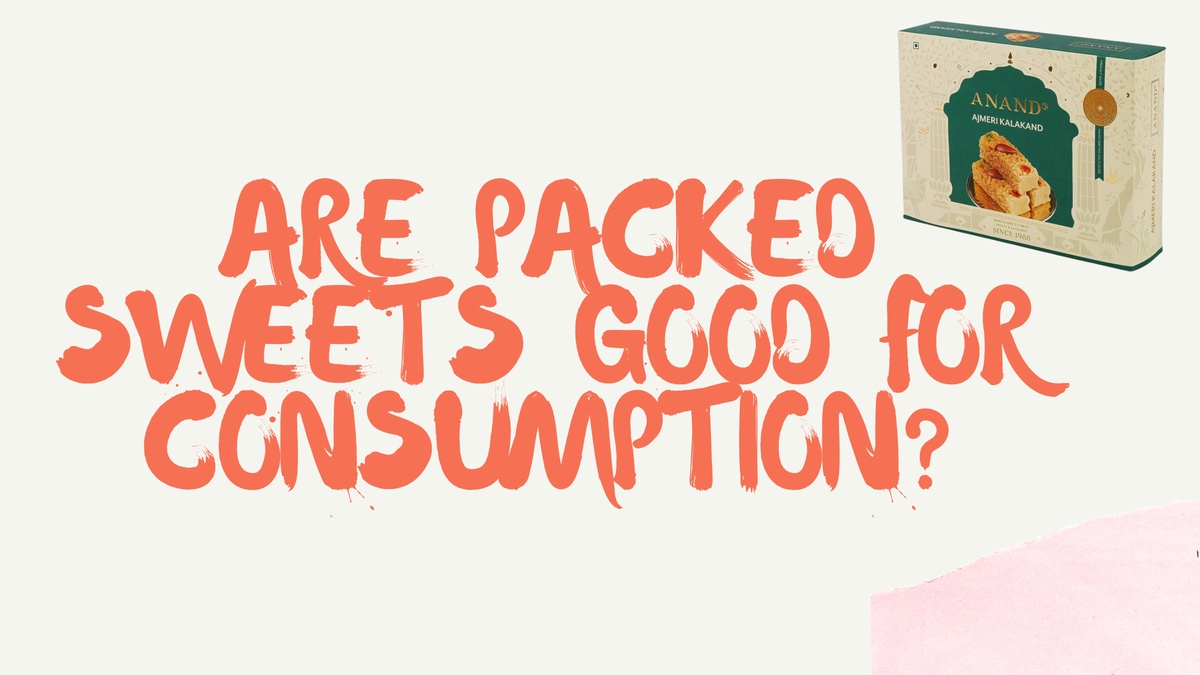In a world where convenience often dictates our choices, packed sweets have become a convenient go-to for indulging our sweet cravings. The popular dessert that is available in packets includes Gulab Jamun, Rasgulla, etc. While packed sweets offer convenience and longer shelf life, there's a growing concern about their nutritional value and health implications.
In this article, we delve into the pros and cons of consuming packed sweets, using the much-loved besan laddoo as a lens through which to examine this topic.
Packet Sweets Are Convenient To Consume
Packaged sweets provide an easy solution for those seeking instant gratification for their sweet tooth. They are readily available in stores, eliminating the need for preparation and cooking. They have preservatives that help extend their shelf life, making them suitable for gifting or enjoying over an extended period, especially during festive seasons. They are manufactured using standardized recipes and processes, ensuring consistency in taste and quality. This can be particularly reassuring when buying sweets for special occasions or as gifts.
They offer a wide range of options, from traditional classics to contemporary fusion desserts. This variety caters to diverse taste preferences and can introduce consumers to new flavors. Packed sweets often come in pre-portioned sizes, helping individuals manage their intake and avoid overindulgence.
Nutritional Concerns of the packaged sweets
Packaged sweets are notorious for their high sugar and fat content. They are made with ghee (clarified butter) and sugar, contributing to their calorie density. Regular consumption of such sweets can lead to weight gain and related health issues. To enhance flavor, appearance, and shelf life, packed sweets may contain artificial colors, flavors, and preservatives. These additives may have adverse health effects for some individuals, including allergies and sensitivities. Packed sweets, due to their extended shelf life, may not offer the same freshness and taste as homemade treats. This can affect the overall taste experience, especially of traditional sweets like besan laddoo. The ingredient list on packed sweets can sometimes be incomplete or vague, making it challenging for consumers to be aware of potential allergens or health concerns.
Packed sweets may lack the personal touch and cultural authenticity that homemade sweets or those purchased from local sweet shops can offer. This loss of tradition can impact the emotional and cultural connection associated with certain sweets, such as Gulab Jamun and Rasgulla.
A Closer Look
Besan laddoo, a beloved Indian sweet, exemplifies the broader debate surrounding packed sweets. It is commonly available in packets. This treat is traditionally made by roasting gram flour in ghee, adding sugar, and shaping the mixture into round balls. Let's put the pros and cons of packed sweets in the context of this sweet.
The sweet is loved by everyone
The sweet holds cultural and nostalgic significance, often prepared during festivals and special occasions. The process of making it from scratch carries a sense of tradition and familial bonding. They offer unparalleled freshness and authentic flavor, with the ability to adjust ingredients to personal taste preferences and dietary needs. When making them at home, individuals have control over the quality of ingredients used, minimizing or avoiding artificial additives and preservatives. But the question remains whether those available in the market are good for consumption.
Packaging the favorite sweet
Preparing the sweet from scratch requires time, effort, and culinary skills. This can be a deterrent for those seeking quick and convenient options. In addition to this, the sweet has a high-calorie content, owing to ghee and sugar, which can be a concern for individuals watching their weight or managing health conditions. Without pre-portioned sizes, individuals might struggle to manage portion sizes, leading to overconsumption.
That's why packets of this sweet available in the market are becoming a popular choice among people. This alternative ensures that the consumer gets the right quality. They can also ensure that they don't consume unnecessarily high amounts of sugar and ghee. In addition to this, authentic brands ensure that they don't have too many preservatives.
Conclusion
The debate around consuming packed sweets centers on balancing convenience with nutritional and cultural considerations. While packed sweets offer convenience, uniformity, and extended shelf life, their nutritional drawbacks and potential health implications cannot be ignored. Besan laddoo, a traditional Indian sweet, embodies this debate by showcasing both the emotional connection and nutritional concerns associated with homemade treats. Ultimately, the decision to consume packed sweets should be made consciously, considering personal preferences, health goals, and the cultural value of authentic culinary experiences. All said, authentic brands ensure optimal use of sugar and ghee that ensures the health of the consumer.


No comments yet